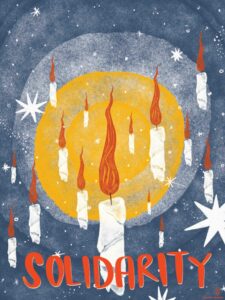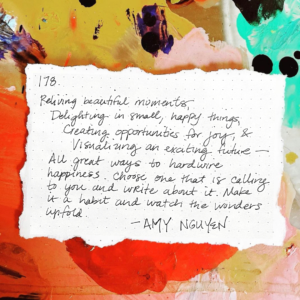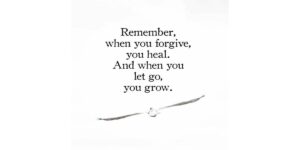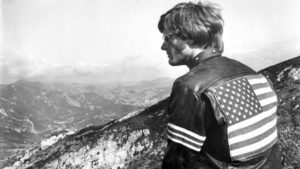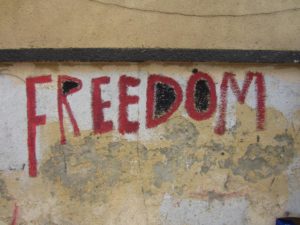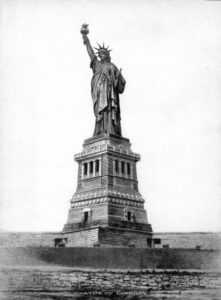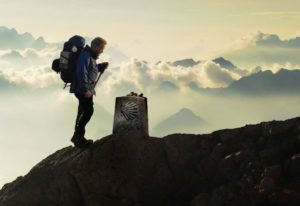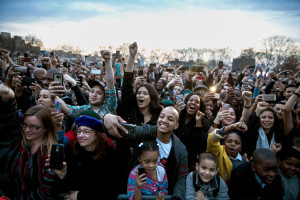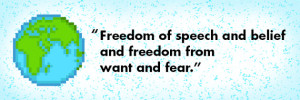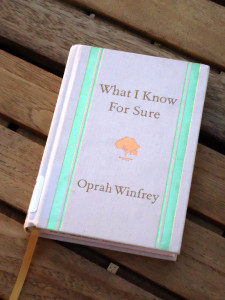Freedom
March 1, 2022
March 1, 2022[Revolutionary Love]
It’s amazing to see the West discover Ukrainians for themselves—and fall in love.
-Julia Ioffe, Journalist, Puck News
G L O R Y T O U K R A I N E!
G L O R Y T O HEROS!
Find President Zelenskyy’s address to the UN from this morning, and listen. -dayle
Sunday, January 16th, 2022
January 16, 2022Marianne Williamson:
Not every lesson feels fun while it’s happening, and at times I have resisted growth fiercely. But I remain open today to the miracle of transformation. I know that as I move forward into a new realm of being, Love itself will aid me in my progress. Spirit will erase the patterns of fear that have sabotaged my past.
“Freedom without consequences is a myth.
Our actions always have consequences.
The question is: who will bear them?” -Seth Godin
From https://www.suleikajaouad.com newsletter this week.
Suleika, your name is on my alter as you continue to ease back into health. February v i b e s strong. Only love and healing and wholeness. -dayle
“When you’re suffering—enduring some kind of rage or heartbreak, disappointment or plain human idiocy—it can feel like you’re alone, like you’re the only person who’s struggling this way. Often, the impulse in those moments is not to share or create but to hide.”
-Suleika Jaouad
Diving deeply into a dynamic unity, Father Richard Rohr writes:
In the early Christian era, only some few Eastern Fathers (such as Origen of Alexandria and Maximus the Confessor) cared to notice that the Christ was clearly something older, larger, and different than Jesus himself. They mystically saw that Jesus is the union of human and divine in space and time, and the Christ is the eternal union of matter and Spirit beyond time. But the later centuries tended to lose this mystical element in favor of dualistic Christianity. We lost our foundational paradigm for connecting all opposites.
Since we could not overcome the split between the spiritual and the material within ourselves, how could we then possibly overcome it for the rest of creation?
The polluted earth, extinct and endangered species, tortured animals, nonstop wars, and constant religious conflicts have been the result. Yet Jesus the Christ has still planted within creation a cosmic hope, and we cannot help but see it in so many unexplainable and wonderful events and people.
For more and more people, union with the divine is first experienced through “the Universal Christ”—in nature, in moments of pure love, silence, inner or outer music, with animals, or a primal sense of awe.
Our encounter with the eternal Christ mystery started about 13.8 billion years ago in an event we now call the “Big Bang.” God has overflowed into visible Reality and revealed God’s self in trilobites, giant flightless birds, jellyfish, pterodactyls, and thousands of species that humans have never once seen. But God did. And that was already more than enough meaning and glory.
From journalist and former CBS news anchor Dan Rather today:
Steady is about taking the world as it comes, trying to control what you can but recognizing much is beyond your ability to shape. It is about joining with others to leverage the power of collective action. It is about caring for yourself when you need to regain your footing. It’s about understanding that others have struggled in the face of injustice and despair. Steady is about recognizing that progress is possible, even when it feels ungraspable. It is also about having the humility to understand that joy can be fleeting, so you need to find it and hold on to it when you can.
I don’t know what the next year holds in store, for me, for you, or for our country and our planet. I hope it is one of greater justice, peace, and health. I know that it will undoubtedly be one of challenges, in ways we can predict, and in ways that are unknowable.
Emerson:
God offers to every mind its choice between truth and repose. Take which you please…you can never have both. […] There is no history. There is only biography.
“Caution is like a disease, it kills ideas. Be daring. And caution will disappear.” -Yoko
Peter Fonda
August 17, 2019Seth Godin
October 24, 2017Freedom.
August 6, 2017“Ciccio, look! Look at that! That’s the greatest light since the star of Bethlehem! That’s the light of freedom! Remember that. Freedom”
[Film creator Frank Capra immigrated to the United States when he was five-years-old, 1903. “Capra remembers the ship’s arrival in New York Harbor, where he saw ‘a statue of a great lady, taller than a church steeple, holding a torch above the land we were about to enter’, recalling his father’s exclamation at the sight.]
Some of Capra’s films include:
It’s a Wonderful Life
It Happened One Night
You Can’t Take It With You
︶⁀°• •° ⁀︶
From the Newseum Institute
http://www.newseuminstitute.org/2017/07/11/first-amendment-receives-a-c-in-quarterly-report-card/
Community.
July 22, 2017“Piety is something you do alone,” he says. “True freedom, spirituality, can only be achieved in community.”
-Martin Sheen
On Being with Krista Tippett
6.22.17
“…I was searching for that elusive thing that all of us search for. Most of the time we’re not even conscious of it, but we’re searching for ourselves in an authentic way. We want to recognize the person we see in the mirror, and embrace that person with all the brokenness and lackluster, all the things that only we are aware of in the depths of our being.”
‘Freedom. And community.’
August 24, 2016‘Millennials are oriented around neighborhood hospitality, rather than national identity or the borderless digital world. […] I get the sense a lot of people are actually about to make the break and immerse themselves in demanding local community movements. […] If millennials are heading anywhere, it seems to be in the direction of community.’
Full article:
“In 18th-century America, colonial society and Native American society sat side by side. The former was buddingly commercial; the latter was communal and tribal. As time went by, the settlers from Europe noticed something: No Indians were defecting to join colonial society, but many whites were defecting to live in the Native American one.
This struck them as strange. Colonial society was richer and more advanced. And yet people were voting with their feet the other way.
The colonials occasionally tried to welcome Native American children into their midst, but they couldn’t persuade them to stay. Benjamin Franklin observed the phenomenon in 1753, writing, “When an Indian child has been brought up among us, taught our language and habituated to our customs, yet if he goes to see his relations and make one Indian ramble with them, there is no persuading him ever to return.”
During the wars with the Indians, many European settlers were taken prisoner and held within Indian tribes. After a while, they had plenty of chances to escape and return, and yet they did not. In fact, when they were “rescued,” they fled and hid from their rescuers.
Sometimes the Indians tried to forcibly return the colonials in a prisoner swap, and still the colonials refused to go. In one case, the Shawanese Indians were compelled to tie up some European women in order to ship them back. After they were returned, the women escaped the colonial towns and ran back to the Indians.
Even as late as 1782, the pattern was still going strong. Hector de Crèvecoeur wrote, “Thousands of Europeans are Indians, and we have no examples of even one of those aborigines having from choice become European.”
I first read about this history several months ago in Sebastian Junger’s excellent book “Tribe.” It has haunted me since. It raises the possibility that our culture is built on some fundamental error about what makes people happy and fulfilled.
The native cultures were more communal. As Junger writes, “They would have practiced extremely close and involved child care. And they would have done almost everything in the company of others. They would have almost never been alone.
If colonial culture was relatively atomized, imagine American culture of today. As we’ve gotten richer, we’ve used wealth to buy space: bigger homes, bigger yards, separate bedrooms, private cars, autonomous lifestyles. Each individual choice makes sense, but the overall atomizing trajectory sometimes seems to backfire. According to the World Health Organization, people in wealthy countries suffer depression by as much as eight times the rate as people in poor countries.
There might be a Great Affluence Fallacy going on — we want privacy in individual instances, but often this makes life generally worse.
Every generation faces the challenge of how to reconcile freedom and community — “On the Road” versus “It’s a Wonderful Life.” But I’m not sure any generation has faced it as acutely as millennials.
In the great American tradition, millennials would like to have their cake and eat it, too. A few years ago, Macklemore and Ryan Lewis came out with a song called “Can’t Hold Us,” which contained the couplet: “We came here to live life like nobody was watching/I got my city right behind me, if I fall, they got me.” In the first line they want complete autonomy; in the second, complete community.
But, of course, you can’t really have both in pure form. If millennials are heading anywhere, it seems to be in the direction of community. Politically, millennials have been drawn to the class solidarity of the Bernie Sanders campaign. Hillary Clinton — secretive and a wall-builder — is the quintessence of boomer autonomy. She has trouble with younger voters.
Professionally, millennials are famous for bringing their whole self to work: turning the office into a source of friendships, meaning and social occasions.
I’m meeting more millennials who embrace the mentality expressed in the book “The Abundant Community,” by John McKnight and Peter Block. The authors are notably hostile to consumerism.
They are anti-institutional and anti-systems. “Our institutions can offer only service — not care — for care is the freely given commitment from the heart of one to another,” they write.
Millennials are oriented around neighborhood hospitality, rather than national identity or the borderless digital world. “A neighborhood is the place where you live and sleep.” How many of your physical neighbors know your name?
Maybe we’re on the cusp of some great cracking. Instead of just paying lip service to community while living for autonomy, I get the sense a lot of people are actually about to make the break and immerse themselves in demanding local community movements. It wouldn’t surprise me if the big change in the coming decades were this: an end to the apotheosis of freedom; more people making the modern equivalent of the Native American leap.”
-David Brooks
Bernie supporters at a rally in the Bronx, NY. (NY TIMES)
Blackbird.
August 2, 2016‘Blackbird singing in the dead of night,
Take these sunken eyes and learn to see
All your life, you were only waiting
for this moment to be free.’
-Paul McCartney, ‘Blackbird’
“I read that McCartney wrote this song about the civil rights struggle after reading about American race riots. He said he got ‘The idea of using a blackbird as a symbol for a black person. It wasn’t necessarily a black bird, but it works that way…Take these broken wings was very much in my mind…it was purposely symbolic.’
McCartney said he penned it in his kitchen in Scotland not long after an incident when the US federal courts forced the racial desegregation of the Little Rock Arkansas, school system.
It is said that freedom begins in the heart.
Many of us are still waiting to be free – – liberated from ourselves – – from our perceived limitations. We yearn for freedom from our patterns of holding ourselves captive and remaining bound to our likes and dislikes, locked in an unwillingness to expand beyond our fears and the past. Freedom from a limiting self-identity is spiritual freedom. Regardless of circumstances, we are called to freedom – – to live from the heart – – in more love, less fear.”
-Rev. Andriette Earl, Heart and Soul Center of Light in Oakland, California
Freedom.
May 1, 2016What I Know For Sure…
June 29, 2015(p. 193, 194, 195)
‘Whenever I hear Paul Simon’s song “Born at the Right Time,” I think he must be singing about me. I came into the world in 1954 in Mississippi – – a state with more lynchings than any other in the Union – – at a time when being a black man walking down the street minding your business could make you subject to any white person’s accusation or whimsy. A time when having a good job meant working for a “nice” white family that at least didn’t call you nigger to your face. A time when Jim Crow reigned, segregation prevailed, and black teachers, themselves scarcely educated, were forced to use ragged textbooks discarded from white schools. Yet the same year I was born, a season of change began. In 1954 the Supreme Court ruled in Brown vs. Board of Education that black people had the right to equal education. The ruling created hope that life could be better for black folks everywhere.
I have always believe free will is a birth right, part of the universe’s design for us. And I know that every soul yearns to be free. In 1997, while I was preparing to play Sethe in the movie Beloved, I arranged a trip along a portion of the Underground Railroad. I wanted to connect with what it felt like to be a slave wandering through the woods, making my way north to a life beyond slavery – – a life where being free at its most basic level, meant not having a master telling you what to do. But when I was blindfolded, taken into the woods, and left along to contemplate which direction led to the next “safe house,” I understood for the first time that freedom isn’t about not having a master. Freedom is about having a choice. (Sethe says) “I’d wake up in the morning’ and decide for myself what to do with the day,” as if thinking: “Imagine, me decide.” What a gift that is.
What I know for sure is that we all need to cherish that gift – – to revel in it rather than take it for granted. After the hundreds of stories I’ve heard of atrocities around the globe, I know that if you’re a woman born in the United States, you’re one of the luckiest women in the world. Take your good fortune and lift your life to its highest calling. Understand that the right choose your own path is a sacred privilege. Use it. Dwell in the possibility.’
